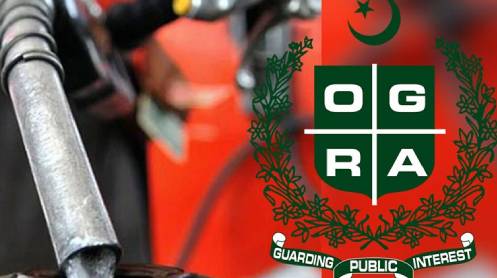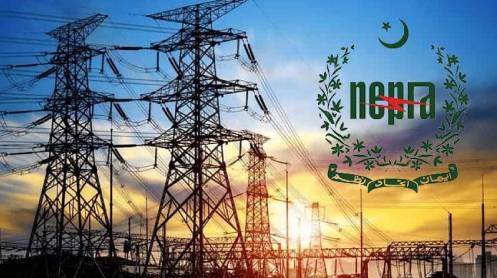• Five other bodies to oversee affairs related to airports’ outsourcing, state-owned enterprises, privatisation, disposal of legislative cases and Chinese projects
• Reko Diq feasibility to be completed by year-end
ISLAMABAD: Prime Minister Shehbaz Sharif on Friday formed seven cabinet committees, including the Economic Coordination Committee (ECC) and the Cabinet Committee on Energy (CCoE).
According to separate notifications issued by the cabinet division, the prime minister will now chair meetings of the ECC and the CCoE. Earlier, the finance minister used to head the ECC.
According to a notification, the ECC now comprises the prime minister and federal ministers for finance, economic affairs, commerce, power, petroleum and planning and development.
Under its Terms of Reference, the ECC will consider all urgent economic matters and coordination of economic policies initiated by various divisions of government, identify and propose measures for the gradual attainment of the status of a welfare state, maintain vigilance on the monetary and credit situation and make proposals for the regulation of credit to maximise production and exports and to prevent inflation.
It will also determine the future pattern of growth of agriculture and industries and review the country’s import policy periodically and its effect on production and investment.
The CCoE now comprises the prime minister and the ministers for economic affairs, finance, petroleum, planning and development and power.
Similarly, a committee has been formed to speed up the process of outsourcing the country’s major airports and privatising Pakistan International Airlines (PIA).
This committee will act under the chairmanship of the defence minister. Other members of the committee are ministers for privatisation/BOI, foreign affairs, planning and development, aviation and privatisation.
The committee will review outsourcing of the management of major airports of the country and will also monitor matters related to PIA’s privatisation.
Another body, the Cabinet Committee on State-Owned Enterprises (SOEs), will be headed by the finance minister. Other members include ministers for maritime affairs, economic affairs, science and technology and housing and works.
Similarly, the Cabinet Committee on Privatisation will be headed by the minister for foreign affairs to formulate policy for privatisation of SOEs. Other members of the committee are ministers for finance, commerce, power, industries and production, and privatisation.
The minister for law and justice will head the Cabinet Committee on Disposal of Legislative Cases (CCLC). Its other members will be ministers for information, overseas Pakistanis, commerce and economic affairs, industries and production.
Another cabinet committee on Chinese Investment Projects (CCCIP) will be headed by the minister for planning and development. Its other members will be ministers for foreign affairs, interior, finance, commerce, petroleum, power, railways and science and technology.
The CCCIP will oversee the progress of investment projects executed by Chinese companies, expeditiously resolve issues faced by Chinese investors, facilitate Chinese investment, reactivate slow-moving projects, and review measures for the security of Chinese workers in Pakistan.
Reko Diq
Separately, in a meeting with a delegation of Barrick Gold, the Canadian company working on the Reko Diq copper and gold mining project, PM Shehbaz described the project as a game changer for the country and the region.
He was informed that the project feasibility would be completed by the end of the year.
“The Reko Diq project will prove to be a game changer for the development of Balochistan and the region. This project will usher in a new era of development of the province and prosperity of the people,” the prime minister said.
He said planning would be made regarding communication infrastructure, especially railway lines, to take full advantage of minerals in Balochistan.
The prime minister asked the Barrick Gold’s delegation, led by its CEO Mark Bristow, to also invest in other mineral projects in Balochistan.
He also proposed that the government and Barrick Gold could jointly establish a technical university in the Chagai district.
“The government is taking all possible measures to facilitate investors, especially in the fields of road and communication systems,” he added.
Briefing on the progress of Reko Diq project, the Barrick Gold delegation informed the meeting that the project feasibility would be completed by the end of the current year.
The prime minister was told that preference was being given to local and Balochistan-domiciled people to work on the Reko Diq project.
Barrick Gold officials noted that the company had set up three schools near Reko Diq and had also imparted technical training to 100 people, including women.
Saudi delegation
Later, a delegation of the Saudi Fund for Development (SFD), led by its CEO Sultan Bin Abdul Rehman Al Marshad, met the prime minister and assured early processing of the shared projects and also reiterated that Saudi Arabia would extend all possible assistance and continued support to Pakistan.
The premier thanked Mr Al Marshad and members of the delegation, who are on a visit to Pakistan from March 22 to 24, and conveyed his best wishes to all the members of the Saudi royal family.
The prime minister appreciated the long-standing friendship between Saudi Arabia and Pakistan and the SFD’s efforts to provide financing to Pakistan in the fields of health, energy, infrastructure and education, as well as during the recent floods.
The PM appreciated the signing of financial agreements on Friday between SFD and the government of Pakistan worth $107m for the construction of hydropower stations in Azad Jammu and Kashmir, which would not only provide clean energy but would also help eradicate the menace of deforestation, besides providing job opportunities to the local population.
The SFD CEO shared updates with the premier about the ongoing projects, including Mohmand Multi-Purpose Hydropower Project, Golen Gol Hydropower Project, Malakand Regional Development Project, and other projects funded through Saudi grants.





